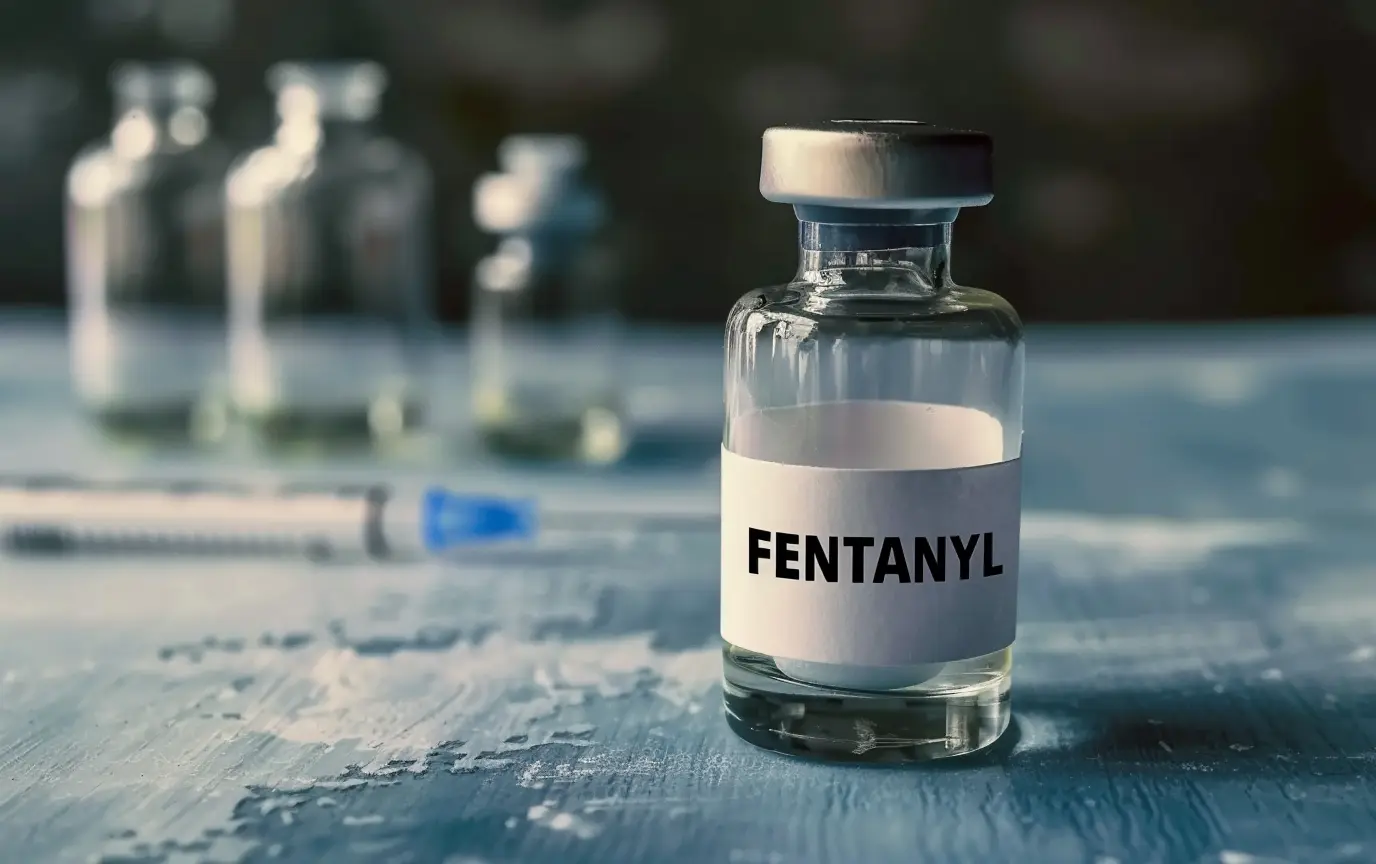Fentanyl Addiction Treatment in Texas

Crestone Wellness
At Crestone Wellness, we’ve built our reputation on understanding the complexities of opioid addiction, especially the debilitating grasp of fentanyl. Our dedicated fentanyl addiction treatment program in Texas not only focuses on physical recovery but also addresses the emotional, psychological, and social aspects of addiction, ensuring a comprehensive healing journey.
The Gravity of Fentanyl Addiction
Fentanyl, a synthetic opioid, is exponentially more potent than morphine. While it has genuine medical applications, its high potency has led to a surge in addiction cases and tragic overdoses. In fact, fentanyl was responsible for nearly 70% of drug overdose deaths in 2022. Our program aims to empower individuals to break free from the chains of fentanyl addiction, offering a holistic approach that goes beyond mere physical treatment.
Fentanyl Addiction Treatment in Texas
The Dangers of Fentanyl
Fentanyl, while a legitimate and valuable tool in medical pain management, also carries with it profound risks when misused or abused. Its potency and rapid onset of effects make it a prime candidate for accidental overdose and other health complications. Here’s an in-depth look at the dangers associated with fentanyl:

Extreme Potency
Fentanyl is estimated to be 50 to 100 times more potent than morphine and approximately 50 times stronger than heroin. This high potency means that even a minute amount—equivalent to a few grains of salt—can be lethal.

Risk of Overdose
Due to its potency, the margin for error with fentanyl is very slim. Small miscalculations in dosage, whether taken medically or recreationally, can lead to overdose. Symptoms include slowed or stopped breathing, bluish-colored lips and nails, unresponsiveness, and pinpoint pupils.

Respiratory Depression
Like other opioids, fentanyl affects the brain’s ability to regulate breathing. Even a slight excess in dosage can lead to respiratory depression, which can be fatal if not promptly addressed.

Illicit Production and Distribution
Illicitly produced fentanyl, often manufactured overseas, has infiltrated drug markets worldwide. It’s frequently mixed with other drugs like heroin, cocaine, or counterfeit pills without the user’s knowledge. This unpredictability substantially increases the risk of overdose, as users may not be aware they’re consuming fentanyl.

Difficulty in Overdose Reversal
While opioid overdoses can often be reversed with timely administration of naloxone (Narcan), fentanyl overdoses may require multiple doses due to its strength. Even with intervention, there’s no guarantee of survival, especially if medical treatment is delayed.

Physical and Psychological Dependence
Regular use of fentanyl, even when taken as prescribed, can lead to physical dependence, where the body requires the drug to function normally. This physical dependence can quickly evolve into addiction, where individuals may engage in risky behaviors to obtain the drug, further exacerbating its dangers.

Long-term Health Effects
Chronic use of fentanyl can lead to various health issues, including a weakened immune system, gastrointestinal problems, and mental health disorders like depression and anxiety.

Start Your Road to Recovery with Only a Phone Call
Contact our admissions team to learn more about our unique programs and services. Or leave your information and let our team reach out to you.
Testimonials
What People Say About Us
“Crestone has such a wonderful atmosphere that is not a hospital feeling. The staff is experienced, caring and dedicated to a comfortable client experience. I strongly recommend seeking help here!”
Elizabeth R.
“This facility is truly essential for the community. Their staff is extremely knowledgable, the whole facility is comfortable, and the program is the perfect length of time and care. You're going to find everything you need here to get back on your feet.”
Tyelur W.
“I cannot thank Crestone Wellness enough. Addiction had taken over my life again and I was completely hopeless, but from my very first phone call with one of the owners, to the staff admitting and taking care of me on a daily basis, to my post treatment follow up calls, I experienced nothing but authentic patience, love, and support.”
Kevin C.
a better life⚬
a better life⚬
a better life⚬
a better life⚬
a better life⚬
awaits you⚬
awaits you⚬
awaits you⚬
awaits you⚬
awaits you⚬
Signs and Symptoms of Fentanyl Addiction
Recognizing the signs and symptoms of fentanyl addiction is crucial for early intervention and seeking effective treatment. Fentanyl, being an extremely potent opioid, can lead to both physical and psychological dependencies in a short span of time. Here’s what you should be aware of:
Physical Symptoms:
- Respiratory Depression: One of the most dangerous side effects of fentanyl use, even in prescribed amounts, is slowed or shallow breathing.
- Drowsiness and Fatigue: Excessive sleepiness, difficulty waking up, or persistent fatigue.
- Constricted Pupils: Often described as “pinpoint” pupils.
- Nausea and Vomiting: Persistent or severe bouts of nausea, sometimes leading to vomiting.
- Itching or Scratching: Some users may experience skin irritation or a constant itch.
- Seizures: In extreme cases, fentanyl misuse can lead to seizures.
- Decreased Appetite: Not feeling hungry or showing a significant decline in food consumption.
Behavioral and Psychological Symptoms:
- Isolation from Friends and Family: Individuals may start distancing themselves from loved ones, avoiding social interactions.
- Mood Swings: Sudden or extreme changes in mood, ranging from euphoria to depression.
- Secretive Behavior: Being elusive about whereabouts or activities, hiding drugs, or paraphernalia.
- Financial Difficulties: Unexplained expenses, borrowing money, or stealing might indicate purchasing the drug illicitly.
- Loss of Interest: Disinterest in hobbies, activities, or responsibilities they once enjoyed or prioritized.
- Defensiveness: Reacting aggressively or defensively when confronted about drug use.
- Increased Tolerance: Needing to consume more of the drug to achieve the same effect, or experiencing reduced effects when using the same amount.
- Withdrawal Symptoms: When not using the drug, showing signs of withdrawal such as sweating, agitation, muscle aches, and anxiety.
What to Expect at Crestone
Why Crestone Wellness Stands Out
- Depth of Experience: Years of treating opioid addictions have equipped us with unparalleled insights into creating effective, personalized recovery plans at our fentanyl rehab facility.
- Continuous Learning: Our commitment to integrating the latest evidence-based practices and therapies means our patients always receive top-tier care.
- Supportive Environment: From our expert medical staff to our empathetic counselors, we ensure every patient feels seen, heard, and valued.
- Beyond Medication: Our holistic approach addresses every facet of the individual, from mind and body wellness practices to spiritual healing.
- Tranquil Recovery Spaces: Our Texas facilities are designed to be peaceful retreats where patients can focus entirely on their recovery journey.
Our Treatment Approach
Individualized Care Plans
Every patient’s drug addiction story is unique. By understanding individual histories and needs, we craft bespoke treatment plans ensuring every patient’s journey is tailored just for them.
Evidence-Based Therapies
Utilizing a blend of traditional and innovative therapies and treatment options, our rehab program ensures that patients benefit from a rounded and effective treatment regimen for drug abuse. Therapies used include internal family systems therapy, individual therapy, EMDR, cognitive-behavioral therapy (CBT), and dialectical behavior therapy (DBT).
The Rehabilitation Journey
Take the First Step with Crestone Wellness
The path to recovery from fentanyl addiction might be challenging, but it’s not insurmountable with the help of a fentanyl rehab program. With the Crestone Wellness fentanyl addiction treatment program in Texas, you’re not walking this path alone. Reach out and begin your journey toward a brighter, healthier future.
Help & FAQ
Frequently Asked Questions (FAQs) about Fentanyl Addiction
What is fentanyl and how is it different from other opioids?
Fentanyl is a synthetic opioid that is 50 to 100 times more potent than morphine and about 50 times more potent than heroin. While it is medically prescribed for pain management, especially in cases of severe or post-surgical pain, its high potency makes it especially dangerous if misused. Due to its strength, even a small amount can lead to overdose or death, making it distinctively more hazardous than many other opioids.
How does someone become addicted to fentanyl?
Fentanyl abuse and Addiction can begin with a legitimate prescription for pain relief. However, due to its potency, individuals may develop a tolerance, leading them to consume higher doses to achieve the same pain-relieving effects. Over time, this can lead to physical dependence and addiction. Additionally, some individuals might come across illicitly manufactured fentanyl, which is often mixed with other drugs, increasing the risk of addiction and overdose.
What are the dangers of mixing fentanyl with other drugs?
Combining fentanyl with other drugs, especially depressants like alcohol, benzodiazepines, or other opioids, can be deadly. The combined effects can severely depress vital functions like breathing, leading to respiratory failure and death. It’s also worth noting that many overdose cases arise from individuals unknowingly consuming drugs laced with fentanyl.
If I suspect someone is overdosing on fentanyl, what should I do?
A suspected fentanyl overdose is a medical emergency. Immediately call 911 or your local emergency number. While waiting for medical help, if you have access to naloxone (Narcan), a drug that can reverse opioid overdoses, administer it. However, due to fentanyl’s potency, multiple doses might be required. Always follow emergency dispatcher instructions and ensure the person is breathing and responsive until help arrives.




